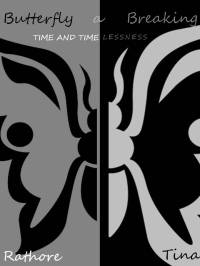My mother always says, “It would be difficult growing up, but you must.”
“Don’t Grow up … There are too many rules and restrictions” – Hugh Hefner
“It was then that I declared, resolved, and determined that I would never under any circumstances be a politician, much less a grocer; that I would stop right there, remain as I was–and so I did; for many years I not only stayed the same size but clung to the same attire.”
Oskar Matzerath, the protagonist of Gunter Grass’ The Tin Drum recounts his third birthday when he decided to “stop right there”- in that moment of time and space, in that year. Oskar willingly stops himself from growing above the age of three. His unwillingness to grow during the times when losing innocence was vital for survival justifies his resolution.
We too, like Oskar, have moments of personal insights when we wish we could keep the day to ourselves and stop where we are. The feeling gets stronger with every passing year and often a part of us resolves not to grow. While we confront every next birthday that marks another year gone, we choose not to keep track of numbers anymore. B’days become redundant, uninvited, burdensome.
Growing up is difficult, I agree with mother, but why “must” we grow? Can we not seize a part of ourselves, and keep it entirely to our own? And as we keep losing ourselves in the process of ‘growth’, can’t be become less careless about things we have and want to have?
Time grows; and grows fast. In the moment of (in)decisiveness of growing and not willing to grow, we are huddled into the mechanical process, often losing track of ourselves. As we grow, years appear to shrink and days pass by like a freight train. When I was a kid, every single day seemed a thousand years long; every year, a light year apart. Every moment offered a life altering vision, every experience was life itself, and every other person appeared to gift something irreplaceable. Every day was a birthday.
Sometimes, while sitting on my favorite childhood bench, carelessly observing the surroundings with overburdened eyes and reading the daily newspaper, I suddenly hear the chirping of birds and the distant dog barks, the rattling of kitchen utensils, unexpected chuckles of my grandmother, and the sound of a silent wind, and for a moment, I am in the time which I thought to have left far behind, I am a child patiently imbibing the world around me, listening to the careless sounds, at peace with myself and the world.
Such fraction of moments, which get rarer with age, are life altering; they bring upon a realization that time is stagnant, and so is the world, and we are growing up, and growth is taking away everything that was once beautiful. In that moment of time travel, I want to be like Oskar- stay where I am; seize time and care no more about losing it; retaining innocent vision and watch the world outgrowing its apparel.
With another birthday, I am not sure whether to take heed of my mother’s advice and resist my irresistible passion for immobility or succumb to my world that refuses to grow beyond this year.











